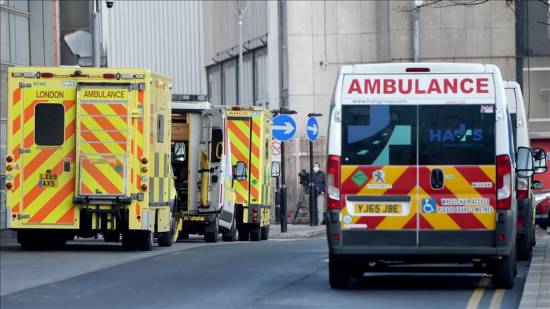Four people in the UK who contracted the Indian variant of the coronavirus have died, a government body reported on Friday.
The deaths occurred between May 5 and 12, according to the Scientific Advisory Group for Emergencies (SAGE), a government body that advises the central government in emergencies.
The deaths are believed to be the first domestic fatalities of the highly contagious mutation.
“We’ve seen further clusters of the B.1.617.2, the variant first observed in India, we’ve seen it especially in Bolton, Blackburn with Darwen and some other parts of the country. At this stage, there are some important unknowns. We believe this variant is more transmissible than the previous one,” Prime Minister Boris Johnson said in a statement.
“The good news is that so far we have no evidence to suggest our vaccines will be less effective in protecting people against severe illness and hospitalisation. So that means we are in a different position from the last time we face a new variant before Christmas because of the scale of our vaccine roll-out,” Johnson added.
There are growing concerns over the spread of the virus strain in various parts of the country and there are fears it could force the government to delay the reopening of the country despite its insistence that the lockdown will come to an end. As of May 12, over 1,300 cases had been detected.
On Thursday, SAGE members convened an emergency meeting to discuss the spread of the Indian variant and agreed to allow surge testing and vaccination in areas of the country that have significant numbers of strain cases in an effort to combat and contain its spread.
“We will flex the vaccine programme according to the clinical advice. Even if you get your first dose now it’ll take two to three weeks before that protection is in place and it begins to affect transmission rates, which especially among the younger cohorts is what’s important to break the cycle of transmission,” said vaccines minister Nadhim Zahawi in an interview with BBC’s Radio 4 programme.
“That is the way we break this cycle. People need to take advantage of those free PCR tests, two tests a week of lateral flow to find out whether you’re positive and get your PCR test after that, that’s what’s really important,” Zahawi added.
However, despite the concerns over its spread, the department of health has said there is no firm evidence to prove that the mutation poses a direct to the efficiency of vaccines or has an impact on the severity of other diseases.
The UK is set to enter its third stage on May 17 of the government’s roadmap out of the third national lockdown where a number of freedoms will be tested including two households meeting indoors and restaurants reopening indoor dining.
On Friday, 2,193 people had a confirmed positive test of the virus. Seventeen deaths were also reported within 28 days of testing positive. Between May 8 and 14, there were 70 deaths within 28 days of testing. This shows a 13.6% decrease in comparison to the previous week.
Over 36 million people were administered their first dose of the vaccine by the end of May 13 with over 19 million people now having received the second./aa


